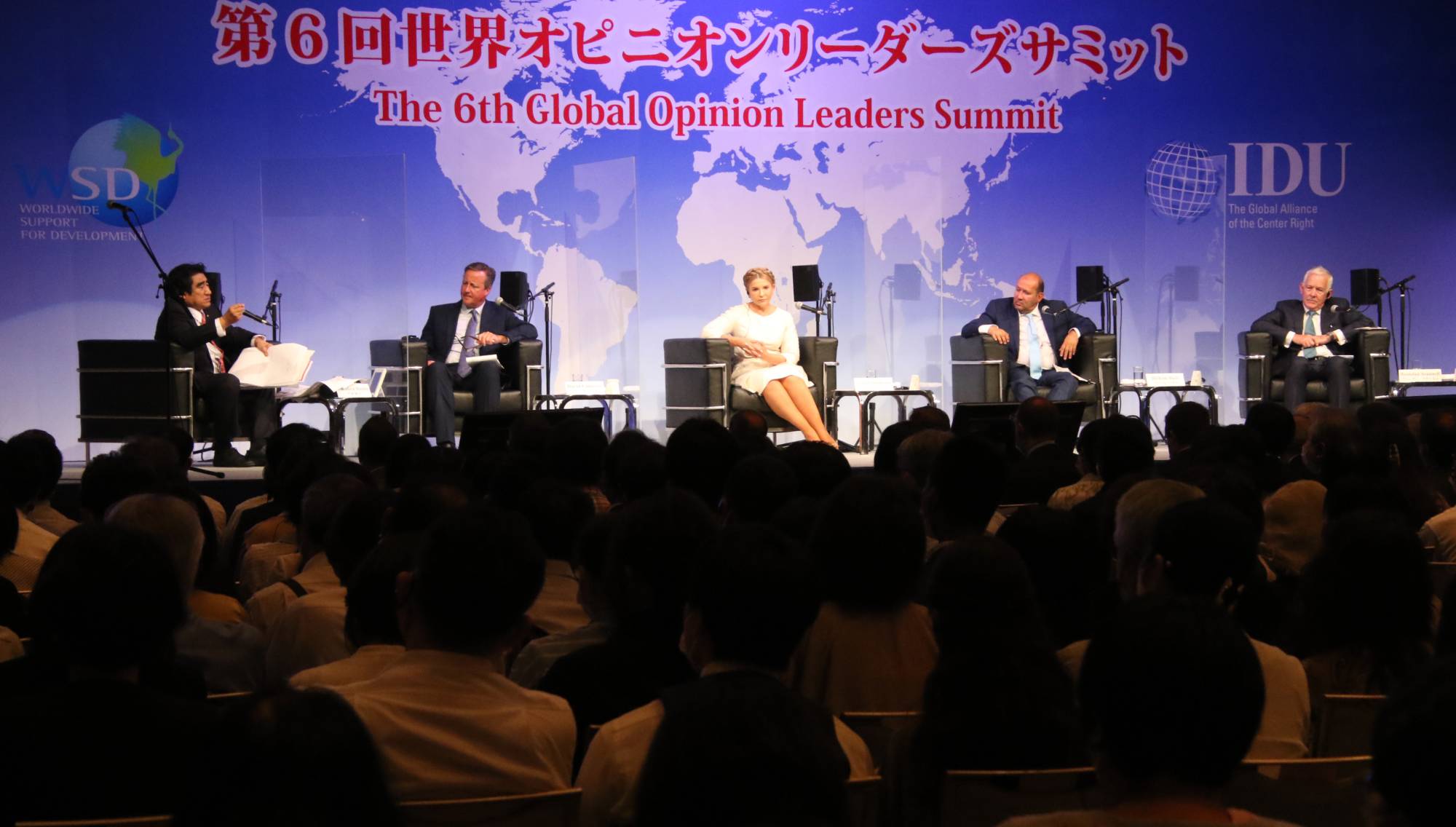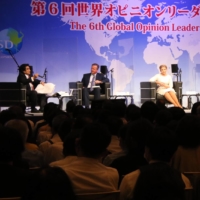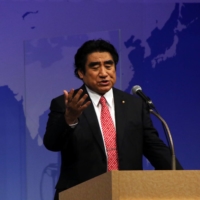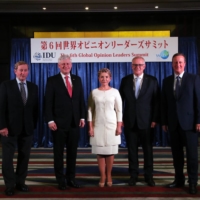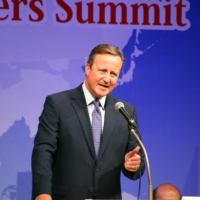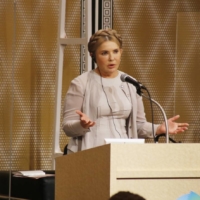The sixth edition of the Global Opinion Leaders Summit was held on July 28 and 29 in Tokyo and attended by over 1,200 people. Held under the auspices of Worldwide Support for Development (WSD), with support from the International Democrat Union (IDU) and the Japan Forum on International Relations (JFIR), the two-day event featured a lineup of leaders from across the world, coming together to share knowledge and deepen cross-cultural ties.
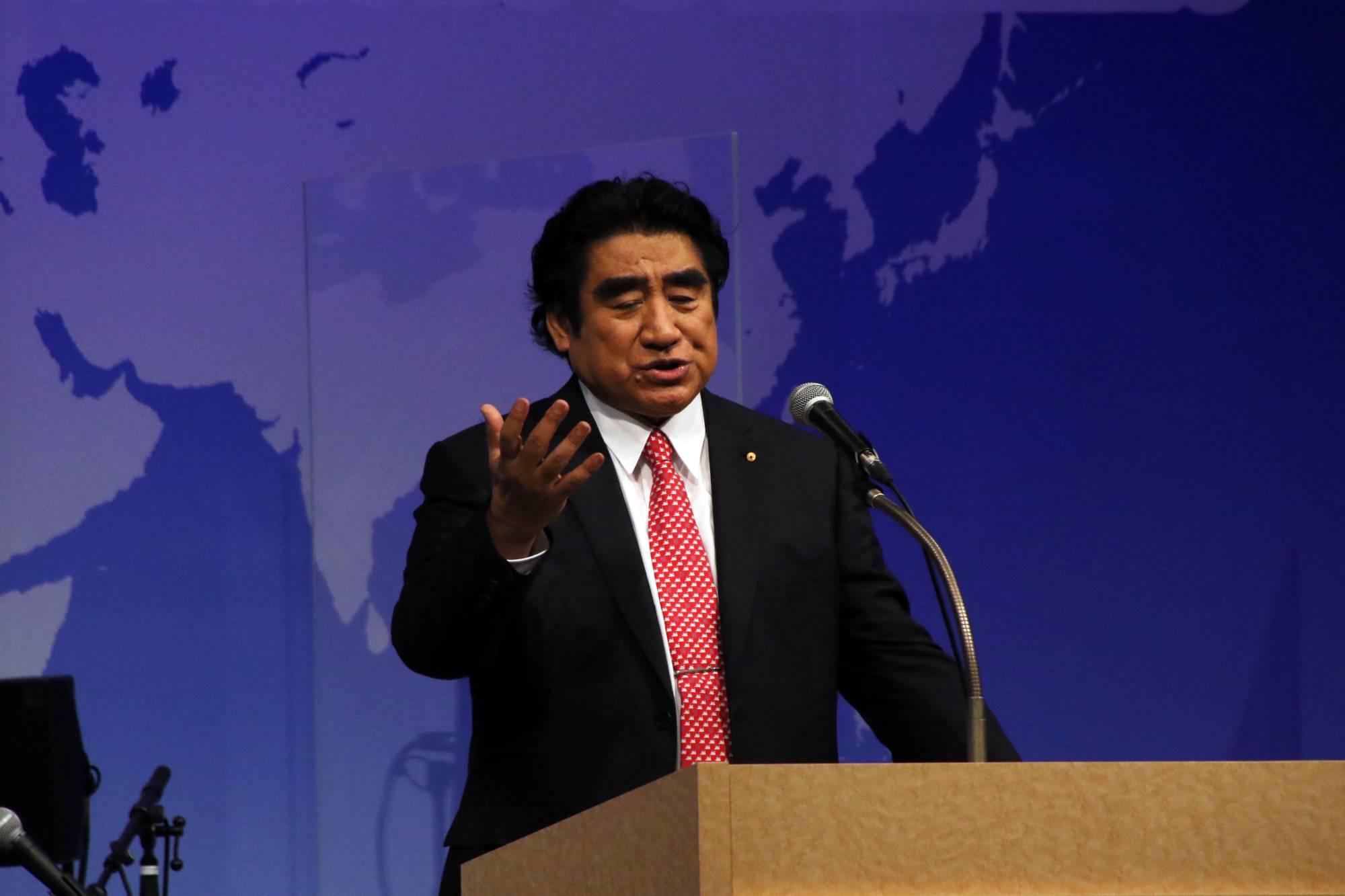
While the WSD is a bipartisan organization, this edition focused on the experiences and voices of conservative world leaders, including six former prime ministers.
The event on July 28, a collaboration summit between the WSD and IDU, featured three panel discussions. The speakers and attendees were welcomed by WSD Chairman and JFIR Director Haruhisa Handa, replacing former Prime Minister Shinzo Abe, who was originally slated to open the event. Handa noted that “this is an opportunity to gather wisdom from the world … and understand the essence of leadership from so many former prime ministers.” He expressed his wish that the summit be an open, easily understandable forum for attendees to truly understand the complex issues at hand.
Handa then handed over the introductions to Katsuei Hirasawa, a member of the House of Representatives who belongs to the Liberal Democratic Party.
The first panel discussion of the day focused on the role of North America on the global stage. The panelists included Stephen Harper, who served as prime minister of Canada from 2006 to 2015 and is currently chairman of the IDU, as well as Peter Rae, the former senator for the Australian state of Tasmania. House of Representatives member Minoru Kiuchi and professor Masaru Ito of Meiji University represented Japan in the talks.
Harper remarked on three “acute geopolitical and macroeconomic challenges” the world is facing: the end of “naive globalism,” the “pandemic party hangover” caused by governmental money expansion, and the management of large-scale debts and deficits.
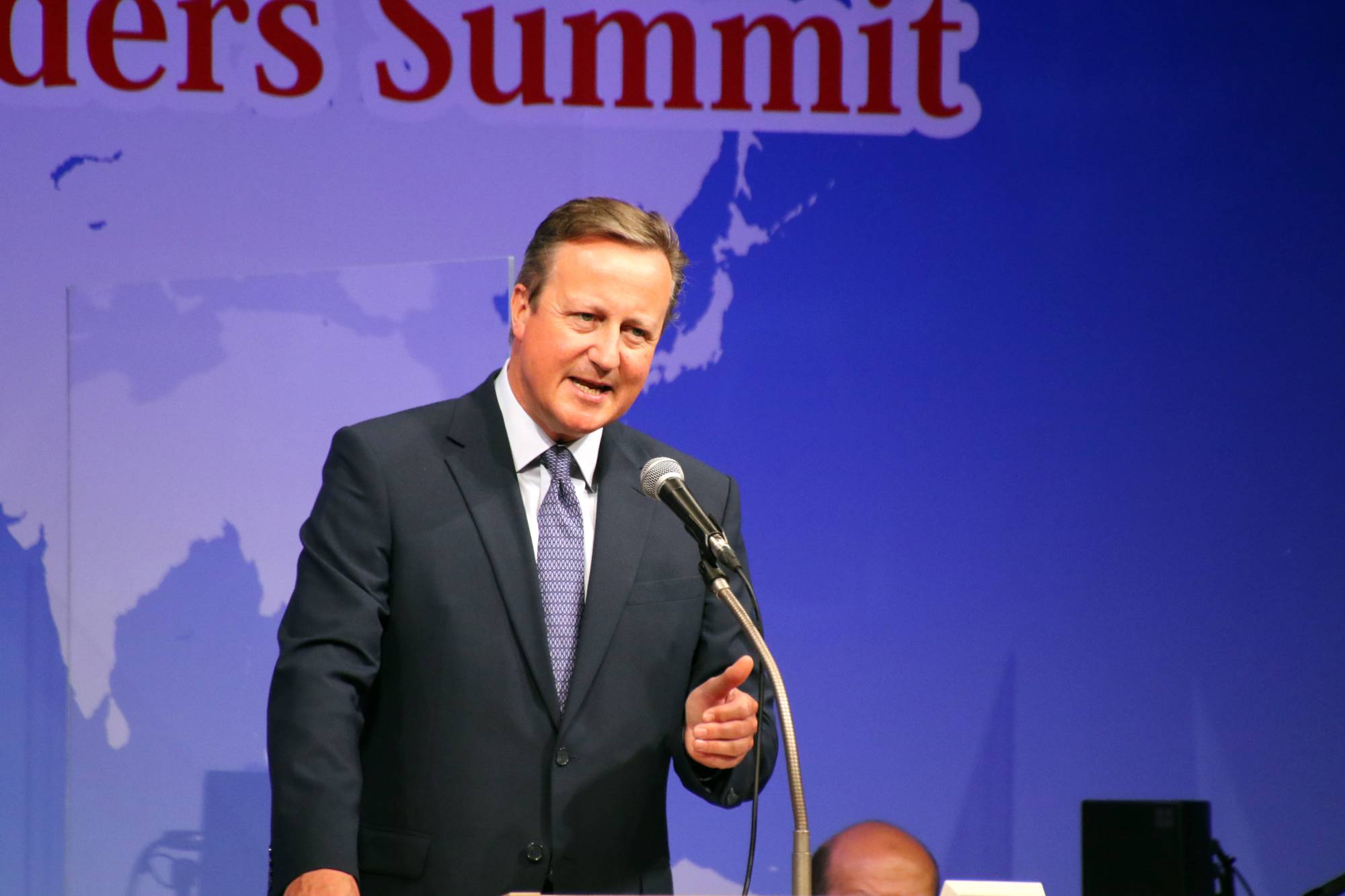
The second panel talk was led by none other than David Cameron, former prime minister of the United Kingdom. Like many of the other speakers, Cameron expressed his sadness at the shocking passing of Abe and reminded attendees through a quote from the same that, even with the serious challenges the world is facing, “hope is the most important factor for growth.”
The discussion, which ranged across the many issues facing the Indo-Pacific region, such as globalization and populism and Vladimir Putin’s increased aggression, benefited from the insights of the star-studded panel, including Ukraine’s former Prime Minister Yulia Tymoshenko, former Ambassadors to Japan Hisham Badr of the Arab Republic of Egypt and the Republic of Ireland’s Brendan Scannell.
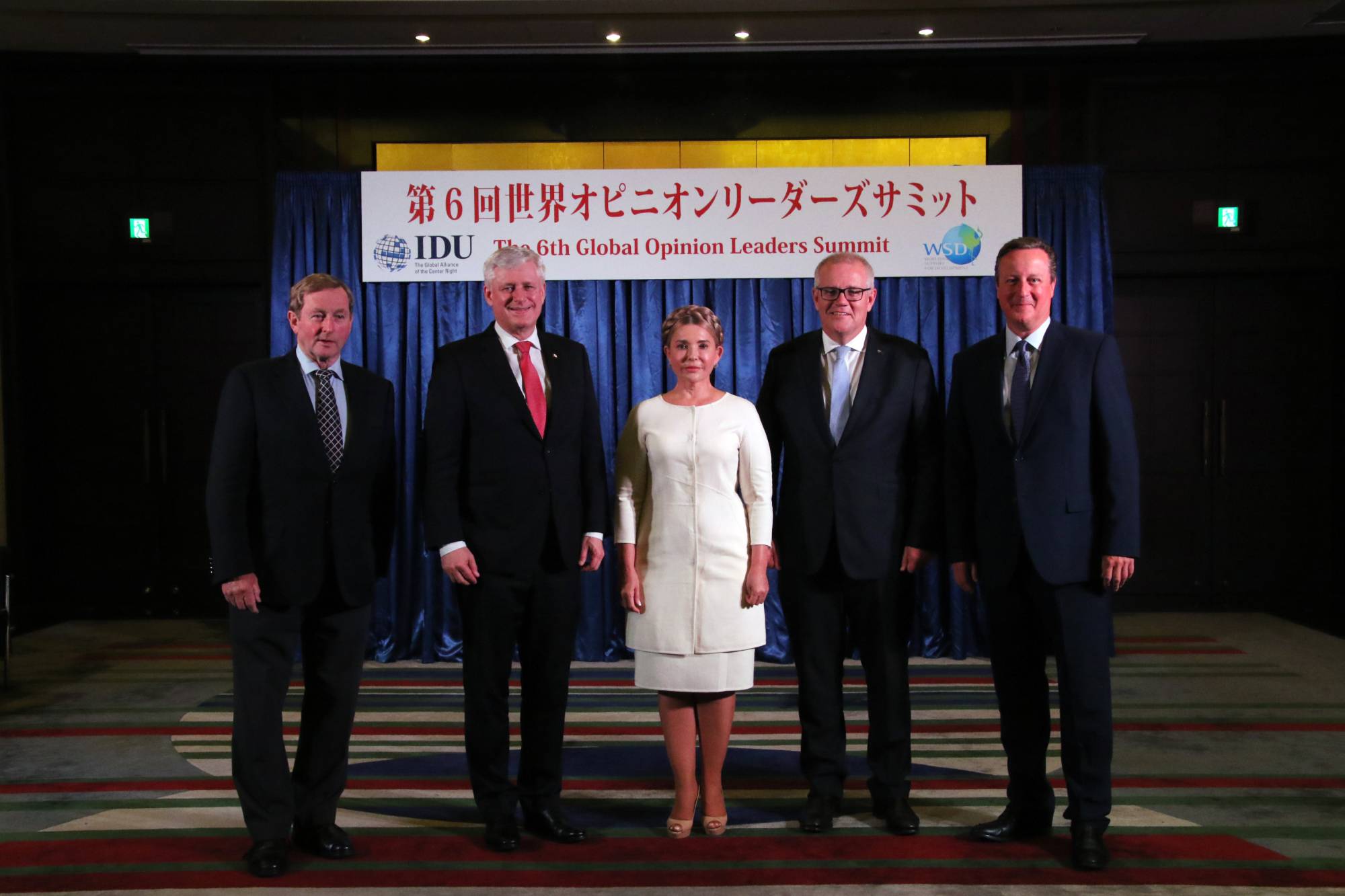
The final discussion of the day centered on a topic dear to Abe’s heart, the Quadrilateral Security Dialogue, a strategic cooperation pact comprising Australia, India, Japan and the United States. Former Australian Prime Minister Scott Morrison was the main speaker for a panel that included First Deputy Chairman of the Foreign Affairs Committee of the Parliament of Ukraine Hryhoriy Nemyria, professor Atsuko Higashino of the University of Tsukuba and Meiji University’s Ito.
Morrison noted that when facing pressure from the People’s Republic of China, the Indo-Pacific region “must not embrace the path of acquiescence in the face of coercion. Rather we must practically insist on engagement within the clear and established rules, with accountability and transparency.”
Former Taoiseach of the Republic of Ireland Enda Kenny closed the sessions, and Handa made the final remarks, cracking a few clever jokes to lighten the mood after the serious discussions of the day.
The following day, the WSD and JRIF held a special symposium for a select audience of 200 people at the Hotel New Otani. The leaders trained their focus on one of the greatest issues in security today, the Russian invasion of Ukraine and its far-reaching consequences.
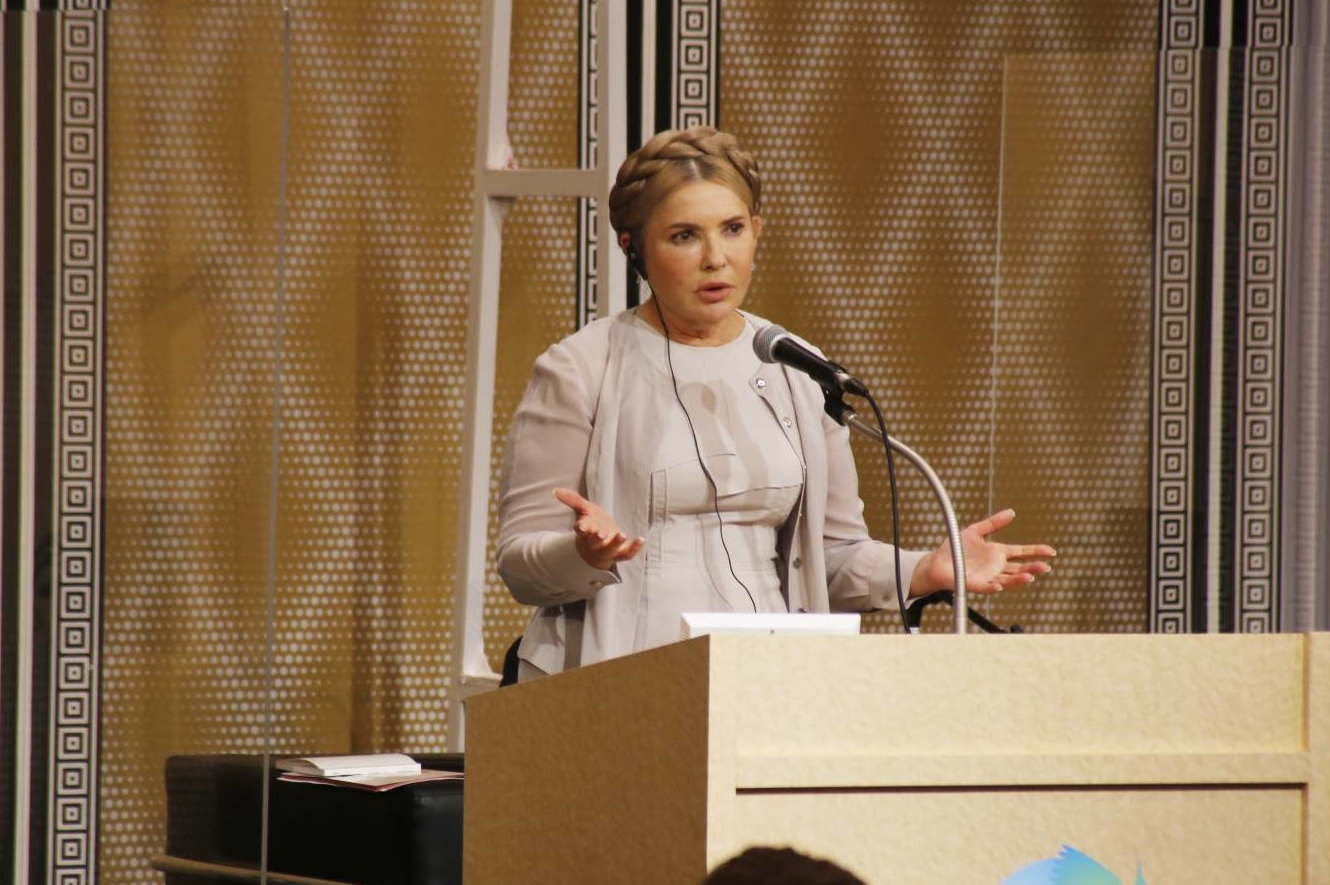
Tymoshenko started her speech by thanking Japan and its people for the steadfast support and outpouring of generosity toward her country. She remarked how Japan and South Korea’s understanding of the threat of Russia’s invasion stands out in Asia, sternly noting: “It is a great puzzlement to us in Ukraine to see many Asian leaders averting their eyes from the fact that Russia invaded our country, and that many of them even embrace the propaganda … of the invader. Russia’s war on Ukraine … is a war of aggression, a war for territorial conquest aimed against all countries of the free world.”
For the symposium, she was joined by Harper, Nemyria, the University of Tsukuba’s Higashino, Handa and People’s Deputy of Ukraine Serhiy Vlasenko.
The second panel, which explored the issue of nationalism versus multilateralism, started off with comments from former Prime Minister of New Zealand John Key. Panelists included Badr, professor Kazuto Suzuki of the University of Tokyo, Ito and House of Representatives member Keichiro Asao.
The focus of the final panel of the event was closer to home, with discussions on Japan’s role in global peace and security efforts, featuring the input of Rae and Morrison, and including the expertise of Chiaki Akimoto (associate fellow at the Royal United Services Institute for Defence and Security Studies), House of Councilors member Rui Matsukawa, Kiuchi and Handa.
Handa closed the sessions, thanking all the speakers for their insight. He pointed out the importance of plotting a clear path for Japan’s future, and the need to balance influence from countries such as the United States, and bolster democracy throughout the world.



